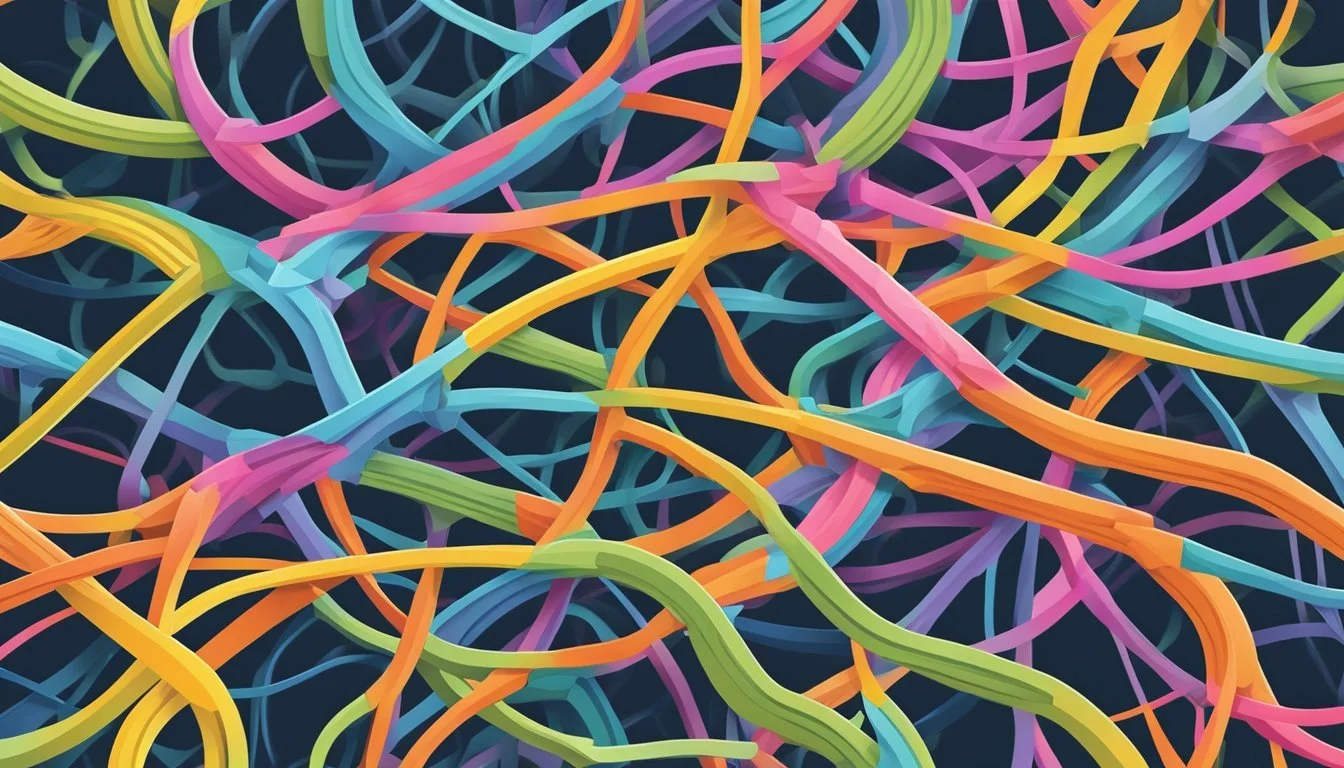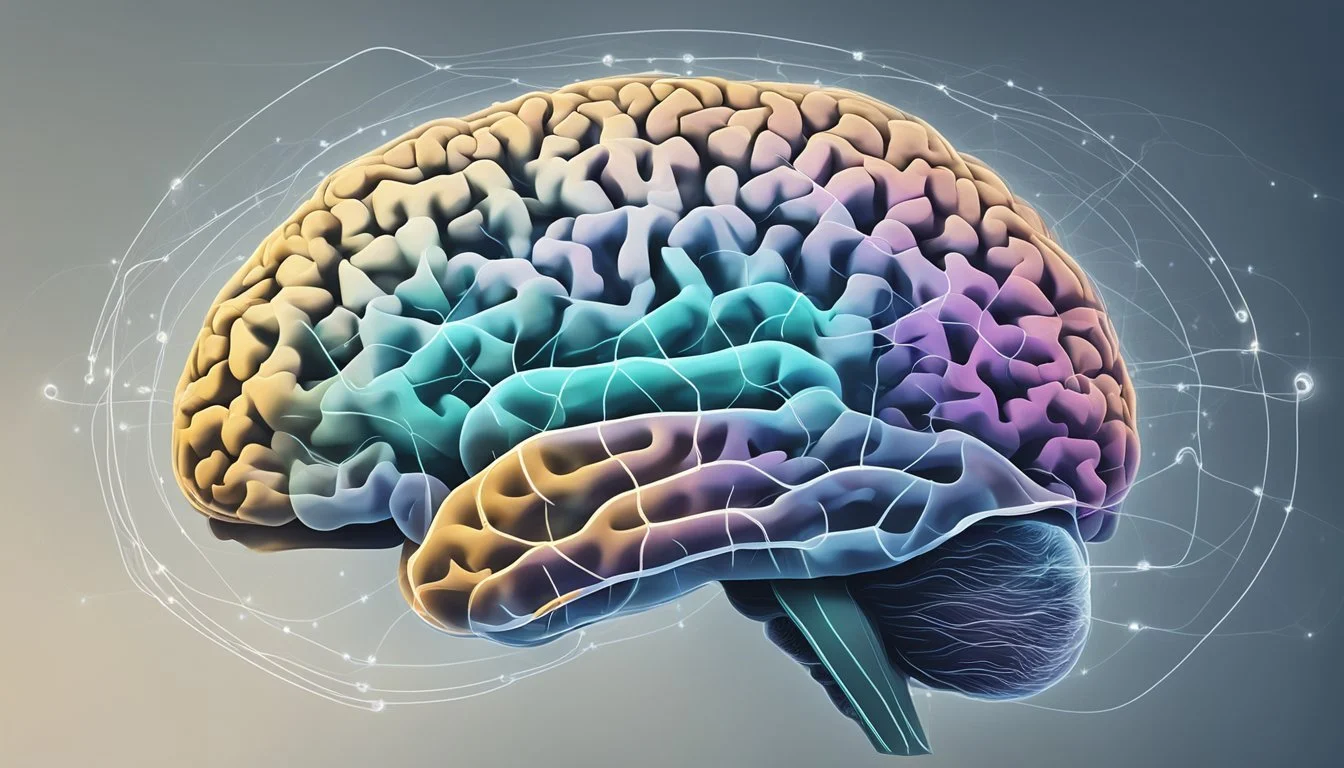Exploring Obsessive Compulsive Disorder in Neurodiversity
Obsessive-compulsive disorder (OCD) is a complex mental health condition characterized by intrusive thoughts and repetitive behaviors. The question of whether OCD falls under the umbrella of neurodivergence has sparked debates in medical and neurodiversity communities. While OCD is classified as a mental health disorder, some experts and individuals consider it a form of neurodivergence due to its impact on brain functioning and cognitive processes.
Neurodiversity encompasses variations in neurological functioning, including conditions like autism and ADHD. OCD shares some similarities with these neurodivergent conditions, such as differences in brain structure and function, particularly in areas related to decision-making and emotional regulation. Research has shown that individuals with OCD often exhibit distinct neural patterns compared to neurotypical individuals.
The classification of OCD as neurodivergent remains subjective and depends on one's definition of neurodiversity. Some argue that OCD's impact on cognitive processes and daily functioning aligns with neurodivergent experiences. Others maintain that OCD's classification as a mental health disorder sets it apart from traditionally recognized neurodivergent conditions. This ongoing discussion highlights the complexity of understanding and categorizing neurodevelopmental differences.
Understanding Neurodiversity and Neurodivergence
Neurodiversity and neurodivergence are key concepts in recognizing and appreciating the natural variations in human brain function and cognitive processing. These ideas have sparked important discussions about neurological differences and fostered greater acceptance of diverse ways of thinking and perceiving the world.
Concepts and Definitions
Neurodiversity refers to the natural variation in human brain function and cognitive processing. This concept recognizes that neurological differences are normal and valuable aspects of human diversity.
Neurodivergence describes individuals whose brain functions differ from what is considered typical. Neurotypical, in contrast, refers to people whose neurological development and functioning align with societal norms.
Common neurodivergent conditions include:
ADHD
Dyslexia
Obsessive-Compulsive Disorder (OCD)
Tourette Syndrome
These conditions represent natural variations in brain structure and function, leading to unique ways of perceiving and interacting with the world.
Neurodiversity Movement and Acceptance
The neurodiversity movement promotes acceptance and inclusion of neurodivergent individuals. It challenges traditional views of neurological differences as disorders or deficits.
Key goals of the movement include:
Advocating for rights and accommodations
Promoting positive self-identity
Challenging stigma and discrimination
Encouraging societal adaptation to diverse neurotypes
This shift in perspective has led to increased support for neurodivergent individuals in education, employment, and social settings. It emphasizes the strengths and unique contributions of diverse cognitive styles.
Identifying Neurodiverse Conditions
Identifying neurodiverse conditions involves recognizing patterns of thinking, behavior, and sensory processing that differ from typical expectations. These differences can manifest in various ways across different conditions.
Autism Spectrum Disorder may involve:
Unique social communication styles
Intense interests or expertise in specific areas
Sensory sensitivities
ADHD often presents with:
Difficulty sustaining attention
Hyperactivity or restlessness
Impulsivity
Dyslexia typically affects:
Reading fluency and comprehension
Spelling and writing skills
Phonological processing
It's important to note that neurodiverse conditions exist on a spectrum, with varying degrees of traits and experiences among individuals.
Overview of OCD
Obsessive-compulsive disorder (OCD) is a complex mental health condition characterized by persistent intrusive thoughts and repetitive behaviors. It affects brain function and structure, particularly in areas related to decision-making and habit formation.
Symptoms and Manifestations
OCD manifests through obsessions and compulsions. Obsessions are unwanted, intrusive thoughts or urges that cause significant distress. Common themes include contamination fears, need for symmetry, or harm-related worries.
Compulsions are repetitive behaviors or mental acts performed to alleviate anxiety caused by obsessions. These may include excessive hand-washing, checking, or mental rituals.
Individuals with OCD often feel compelled to perform these rituals, even when recognizing them as irrational. The cycle of obsessions and compulsions can significantly impact daily functioning and quality of life.
Brain Function and Structure
Research has identified differences in brain function and structure in individuals with OCD. Neuroimaging studies have shown altered activity in the frontal cortex and basal ganglia.
The orbitofrontal cortex, involved in decision-making and behavioral control, often shows hyperactivity in OCD patients. This may contribute to difficulty in stopping compulsive behaviors.
Structural differences have also been observed, including changes in white matter connectivity and gray matter volume in regions associated with fear processing and habit formation.
Co-occurrence with Neurodivergent Conditions
OCD frequently co-occurs with other neurodivergent conditions. Attention-deficit/hyperactivity disorder (ADHD) and autism spectrum disorders are common comorbidities.
The overlap between OCD and these conditions can complicate diagnosis and treatment. For example, repetitive behaviors in autism may resemble OCD compulsions, but the underlying causes differ.
Some researchers argue that OCD itself may be considered a form of neurodivergence, given its distinct cognitive patterns and neurological differences. This perspective aligns with broader definitions of neurodiversity.
Diagnosis and Treatment of OCD
Accurate diagnosis and effective treatment are crucial for managing Obsessive-Compulsive Disorder (OCD). Various approaches and modalities can help individuals with OCD regain control over their lives and reduce symptoms.
Approaches to Diagnosis
Mental health professionals use specific criteria to diagnose OCD. The Diagnostic and Statistical Manual of Mental Disorders (DSM-5) outlines key symptoms, including persistent obsessions and compulsions that significantly impact daily functioning.
Clinicians conduct thorough interviews to assess the nature and severity of symptoms. They may use standardized assessment tools like the Yale-Brown Obsessive Compulsive Scale (Y-BOCS) to measure symptom intensity.
Differential diagnosis is important to distinguish OCD from other anxiety disorders or conditions with similar symptoms. Brain scans or neurological tests may be performed to rule out other medical causes.
Treatment Modalities
OCD treatment typically involves a combination of psychotherapy and medication. Cognitive Behavioral Therapy (CBT) is the most effective psychotherapeutic approach for OCD.
Selective Serotonin Reuptake Inhibitors (SSRIs) are the first-line medication treatment. Common SSRIs prescribed for OCD include:
Fluoxetine
Sertraline
Paroxetine
In some cases, antipsychotic medications may be added to augment SSRI treatment.
Group therapy and support groups can provide additional benefits, offering peer support and shared coping strategies.
Exposure and Response Prevention
Exposure and Response Prevention (ERP) is a specialized form of CBT highly effective for treating OCD. It involves gradual exposure to anxiety-provoking situations or thoughts while preventing compulsive responses.
ERP helps individuals learn that anxiety decreases naturally without performing compulsions. This process reduces the power of obsessions over time.
A typical ERP session might involve:
Creating a hierarchy of feared situations
Gradually facing these situations with therapist guidance
Resisting compulsive urges during exposure
Reflecting on the experience and anxiety reduction
ERP can be challenging but offers significant long-term benefits for managing OCD symptoms.
OCD in the Context of Neurodivergence
Obsessive-Compulsive Disorder (OCD) is increasingly recognized as a neurodivergent condition, reflecting the diversity of human cognition. Its unique characteristics shape daily experiences, present distinct challenges, and require tailored support strategies.
Impact on Daily Life and Social Interaction
OCD significantly affects an individual's daily routines and social relationships. Intrusive thoughts and compulsive behaviors can consume considerable time and energy. Simple tasks may become complex rituals, leading to delays and increased stress.
Social interactions often suffer due to OCD symptoms. Individuals may avoid certain situations or struggle to engage fully in conversations. Fear of contamination or the need for symmetry can limit social activities.
Work and academic performance can be impacted. Perfectionism associated with OCD may lead to procrastination or excessive time spent on tasks. This can result in missed deadlines or reduced productivity.
Challenges in Diverse Neurological Profiles
OCD presents unique challenges when combined with other neurodivergent conditions. Co-occurring ADHD can intensify impulsivity and complicate symptom management. Autism spectrum disorder may exacerbate rigidity in thought patterns and behaviors.
Sensory processing issues can interact with OCD symptoms, amplifying distress in certain environments. This can lead to heightened anxiety and more frequent compulsive behaviors.
Cognitive differences associated with neurodivergence can influence how OCD manifests. Executive function difficulties may make it harder to resist compulsions or implement coping strategies.
Support and Coping Mechanisms
Effective support for neurodivergent individuals with OCD often involves a multifaceted approach. Cognitive-behavioral therapy (CBT) tailored to neurodivergent needs can be highly beneficial. Exposure and response prevention (ERP) techniques may require adaptation for different cognitive styles.
Medication can play a role in managing OCD symptoms. SSRIs are commonly prescribed, but dosages and types may need adjustment for neurodivergent individuals.
Self-help strategies include:
Mindfulness practices
Structured routines
Cognitive restructuring techniques
Support groups specifically for neurodivergent individuals with OCD can provide valuable peer connections and shared coping strategies. Online communities offer accessible support options.
Educating family members and friends about OCD in the context of neurodivergence is crucial. This understanding can lead to more effective support networks and reduced stigma.
Neurodivergence Beyond OCD
Neurodivergence encompasses a wide range of neurological variations beyond OCD. These conditions represent diverse brain structures and functions that contribute to the rich tapestry of human cognition and experience.
Autism Spectrum Disorders
Autism Spectrum Disorders (ASD) are characterized by differences in social communication, sensory processing, and patterns of behavior. Individuals with ASD may exhibit:
Challenges in social interactions
Repetitive behaviors or restricted interests
Sensory sensitivities
Unique communication styles
ASD is highly variable, with each person experiencing a unique combination of traits. Some autistic individuals possess exceptional abilities in areas like pattern recognition, memory, or specific academic subjects.
ADHD and Dyslexia
Attention-Deficit/Hyperactivity Disorder (ADHD) and dyslexia are two common neurodevelopmental conditions.
ADHD features:
Inattention
Hyperactivity
Impulsivity
People with ADHD often struggle with focus and organization but may excel in creative thinking and problem-solving.
Dyslexia affects reading and language processing. Individuals with dyslexia may have difficulty with:
Decoding words
Spelling
Reading fluency
Despite these challenges, many dyslexic individuals demonstrate strengths in visual thinking and entrepreneurship.
Other Associated Neurodiversities
Several other conditions fall under the neurodiversity umbrella:
Dyspraxia: Affects motor coordination and spatial awareness.
Tourette Syndrome: Characterized by involuntary movements or vocalizations called tics.
Traumatic Brain Injury (TBI): Can result in cognitive, emotional, and physical changes.
Post-Traumatic Stress Disorder (PTSD): Alters brain function in response to trauma.
These neurodiversities can coexist with each other or with OCD, creating unique neurological profiles. Each condition brings its own set of challenges and strengths, contributing to the diverse spectrum of human neurology.
Perspectives and Personal Experiences
Personal stories and advocacy efforts provide valuable insights into the lived experiences of individuals with OCD and neurodivergence. These narratives illuminate the challenges faced and the strategies developed to thrive.
Living with OCD and Neurodivergence
Many individuals with OCD report intense anxiety and distress related to their intrusive thoughts and compulsions. They often describe feeling trapped in cycles of obsessive thinking and repetitive behaviors. Some find that their OCD symptoms intertwine with other neurodivergent traits, such as those associated with autism spectrum disorder (ASD).
For example, a person might experience heightened sensory sensitivities alongside OCD-related contamination fears. This overlap can complicate diagnosis and treatment. However, it can also lead to unique coping strategies and strengths.
Some individuals report that their detail-oriented thinking, common in both OCD and ASD, allows them to excel in certain areas of work or study. Others find that their experiences foster increased empathy and understanding for diverse mental health experiences.
Advocacy and Raising Awareness
Many people with OCD and neurodivergence actively work to raise awareness and combat stigma. They share their stories through blogs, social media, and public speaking engagements. These efforts aim to educate the public about the realities of living with OCD and other neurodivergent conditions.
Advocacy groups organize events like OCD Awareness Week to promote understanding and support. They also push for improved access to mental health services and accommodations in educational and workplace settings.
Some advocates focus on the importance of early intervention and proper diagnosis. They emphasize the need for healthcare providers to recognize the potential overlap between OCD and other neurodevelopmental conditions.
By sharing their experiences, these individuals help create a more inclusive and understanding society for those with OCD and neurodivergence.
Research and Future Directions
Ongoing research into OCD and neurodivergence explores neurobiological underpinnings and innovative therapeutic approaches. Studies aim to uncover the complex interplay between genetics, brain structure, and environmental factors.
Neurobiological Factors
Brain imaging studies have revealed altered activity in regions like the orbitofrontal cortex and basal ganglia in individuals with OCD. Researchers are investigating how these neurological differences may relate to repetitive behaviors and intrusive thoughts.
Genetic studies have identified several genes potentially linked to OCD risk. Future research will likely focus on understanding how these genes influence brain development and function.
Environmental factors, such as stress and trauma, are being examined for their role in triggering or exacerbating OCD symptoms. This research may lead to improved prevention strategies.
Innovations in Therapy and Support
New therapeutic approaches combine cognitive-behavioral techniques with technology. Virtual reality exposure therapy shows promise in treating specific OCD subtypes by providing controlled, immersive environments for exposure exercises.
Researchers are exploring the potential of non-invasive brain stimulation techniques like transcranial magnetic stimulation (TMS) to modulate neural circuits involved in OCD.
Personalized medicine approaches aim to tailor treatments based on individual neurobiological profiles. This may involve combining genetic testing with brain imaging to predict treatment response.
Digital health interventions, including smartphone apps and online support groups, are being developed to provide accessible, ongoing support for individuals with OCD.




